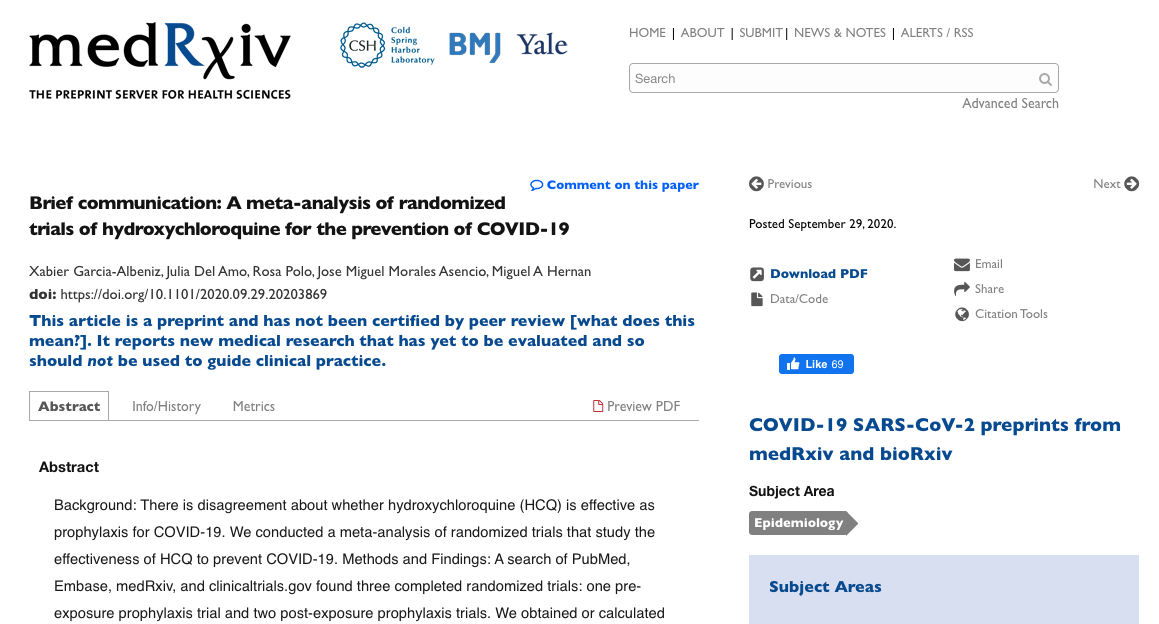Source: MedRxiv. Full Study in PDF here
Xabier Garcia-Albeniz, Julia Del Amo, Rosa Polo, Jose Miguel Morales Asencio, Miguel A HernanmedRxiv 2020.09.29.20203869; doi: https://doi.org/10.1101/2020.09.29.20203869
Abstract
Background: There is disagreement about whether hydroxychloroquine (HCQ) is effective as prophylaxis for COVID-19. We conducted a meta-analysis of randomized trials that study the effectiveness of HCQ to prevent COVID-19.
Methods and Findings: A search of PubMed, Embase, medRxiv, and clinicaltrials.gov found three completed randomized trials: one pre-exposure prophylaxis trial and two post-exposure prophylaxis trials. We obtained or calculated the risk ratio of COVID-19 diagnosis for assignment to HCQ versus no HCQ (either placebo or usual care) for each trial, and then pooled the risk ratio estimates. The risk ratio estimated for each of the individual trials were 0.74 (95% CI 0.50-1.10), 0.83 (95% CI: 0.58-1.18), and 0.69 (95% CI: 0.35-1.37). The pooled risk ratio estimate was 0.78 (95% CI: 0.61-0.99).
All three trials found a similar rate of adverse effects in the HCQ and no HCQ groups.
Discussion:
The available evidence indicates that HCQ reduces the risk of COVID-19 by about 20%.
Yet the findings from the randomized trials were widely interpreted as evidence of lack of effectiveness of HCQ, simply because they were not statistically significant when taking them individually. Completion of the ongoing prophylaxis trials is needed to generate more precise estimates of the effectiveness of HCQ to prevent COVID-19.
Competing Interest Statement
The authors have declared no competing interest.
Funding Statement
This work was not funded
Author Declarations
I confirm all relevant ethical guidelines have been followed, and any necessary IRB and/or ethics committee approvals have been obtained.
Yes
The details of the IRB/oversight body that provided approval or exemption for the research described are given below:
Not applicable
All necessary patient/participant consent has been obtained and the appropriate institutional forms have been archived.
Yes
I understand that all clinical trials and any other prospective interventional studies must be registered with an ICMJE-approved registry, such as ClinicalTrials.gov. I confirm that any such study reported in the manuscript has been registered and the trial registration ID is provided (note: if posting a prospective study registered retrospectively, please provide a statement in the trial ID field explaining why the study was not registered in advance).
Yes
I have followed all appropriate research reporting guidelines and uploaded the relevant EQUATOR Network research reporting checklist(s) and other pertinent material as supplementary files, if applicable.
Yes
Data Availability
Data used in the analysis are publicly available
Melbourne healthcare workers recruited for hydroxychloroquine prophylactic trial

